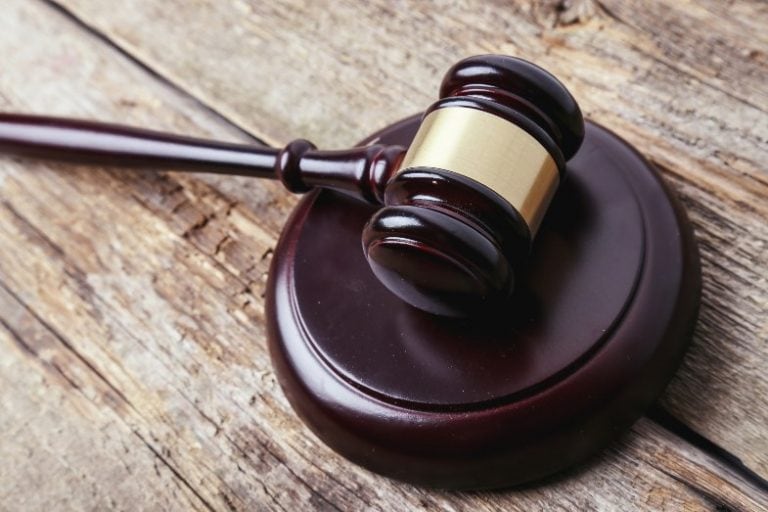Understanding the Seriousness of Indictable Offences in New South Wales
In New South Wales, indictable offences are considered more severe than others and are therefore handled more seriously and in a particular form. When someone faces an indictable offence, their cases proceed to higher courts like the Supreme Court or District Court.
Indictable offences are very rigid, and specific legislation dictates that some of these cases can never be heard by anyone other than the Supreme Court. The Crimes Act of 1900, the Crimes Sentencing Procedure Act of 1999, and the Criminal Procedure Act of 1986 are all laws that guide indictable offences.
Indictable offences are incredibly serious. If you’re facing charges under these offences or have a loved one who is, learning what they are and how the courts, law enforcement, and lawyers handle them is essential. JJ Lawyers can better help you understand what indictable offences are.
Organise A Free Consultation – (02) 8005 3075
What Are Indictable Offences?
According to Australian law, indictable offences are any crimes that will be dealt with by indictment. Under the Criminal Procedure Act of 1986, Section 46, the District and Supreme Court has all authority for all indictable offences.
These types of offences are generally severe and dealt with by the District or Supreme Court. Still, there are instances where you can be charged with in the local courts for indictable offences. Whether a case can be handled locally will depend on whether it’s a table one or table two indictable offence.
Table One
Table one offences are when the prosecution, or the defence, will choose to have the case dealt with by the District of Supreme Court. These tend to be very severe crimes where someone is facing an indictment. Offences that fall under the table one classification include:
- Public order offences like riots
- Identify fraud offences
- Robbery
- Reckless wounding of someone
- Causing serious bodily harm
- Larceny
- Stealing or taking stolen goods over $5,000
- Participating in a criminal group (gangs, etc.)
- Stealing motor vehicles
- Particular breaking and entering offences
- Escaping law enforcement custody
- Certain drug offences
- Murder
Table Two
Table two offences are where only the prosecution can request that the crime be dealt with on indictment in the District Court. These offences tend to be more severe than some table one offences, but only sometimes. Here are examples of table two crimes:
- Assault causing bodily harm
- Common assault
- Stalking and intimidation
- Sexual Assault, Sexual touching & Sexual Offences
- Larceny
- Steal or take stolen goods under $5,000
- Possession of tools used to break into a home or property
- Animal cruelty
- Recording an intimate image or video without consent
Indictable Offence Limitation Period
Something that sets indictable offences apart from summary offences is that indictable offences don’t have any statute of limitations. Summary offences have a limitation period that varies depending on the crime. Essentially, the courts can prosecute someone on an indictable offence with no time limit.
With no limitation period, the courts can charge someone with an indictable offence even decades after the person committed the crime initially. Even though proving an indictable offence after several years can be challenging, the procedures are the same as if the crime happened a few days ago.
Since strictly indictable offences are more severe crimes, the lack of a limitation period allows law enforcement to put away violent and dangerous criminals no matter how long ago their crimes were.
If you or someone you love is facing indictable offence charges, whether recent or from years ago, JJ Lawyers can help. Give us a call today to discuss your case and see what we can do for you.
Organise A Free Consultation – (02) 8005 3075
Indictable Offences Dealt With Summarily
The Benefits of Having Indictable Offences Heard Summarily
Indictable offences can be heard summarily if the prosecution and defence agree that that’s how they want to handle the case. For the most part, offences heard summarily don’t have penalties for more than two years imprisonment.
Reasons that the prosecution and defence might choose to have the case heard before a Magistrate include:
- The process moves quicker
- The process is less formal
- It’s more affordable
The benefit of having indictable criminal offences heard summarily is that the maximum penalty is far lower than if the case were to go to a higher court. The process will move much faster, which means the defendant can get on with their punishment more quickly than the case before the higher courts.
Indictable Offences Dealt With On Indictment
The Steps Involved in Having Indictable Offences Dealt with On Indictment
When an indictable offence is very serious, or the prosecution and defence disagree on the case being heard summarily, it automatically goes to a higher court for finalisation. But, before the higher court can listen to the case, it has to go through charge certification and case conferencing.
Charge certification means that a senior prosecutor must examine the evidence and determine which charges will proceed to the higher court. The defence and prosecution will then hold a case conference to decide if they can resolve the charges with an agreement.
If they cannot agree, the defendant will enter a plea, and it goes to the higher court for finalisation. After it’s been decided that the indictable offence will be heard at the higher court, it either goes to trial by judge and jury or a sentencing hearing.
When a higher court hears indictable offences, they can impose the maximum sentencing for each violation if they choose to.
Summary Offences
Quickly Resolving Less Serious Offences with Summary Offences
Summary offences under indictable offences include driving under the influence, minor criminal damage to property, and disorderly behaviour. Those facing summary offences cannot go before juries, even if they prefer that.
These tend to be far less serious than other offences, so there’s no need to waste time sending them to trial by jury, and a judge and lawyers handle them.
Parting Thoughts
Organise A Free Consultation With JJ Lawyers for Help with Indictable Offences
Indictable offences in Australia are serious crimes broken down into two tables partially based on severity. Depending on the crime someone committed and the opinions of the prosecution and defence, the indictable case can be heard summarily or in a higher court.
Regardless of the indictable offence, our criminal lawyers Sydney are ready to help. We offer free consultations to all potential clients concerning stealing & fraud charges, and we can discuss how to move forward when dealing with indictable offences.
Organise A Free Consultation – (02) 8005 3075
For more comprehensive breakdowns, see our dedicated law blog, where we answer legal advice questions relating to ‘How Long After An Assault Can You Press Charges Australia?’, ‘What Is An Intensive Corrections Order?’ & More!






